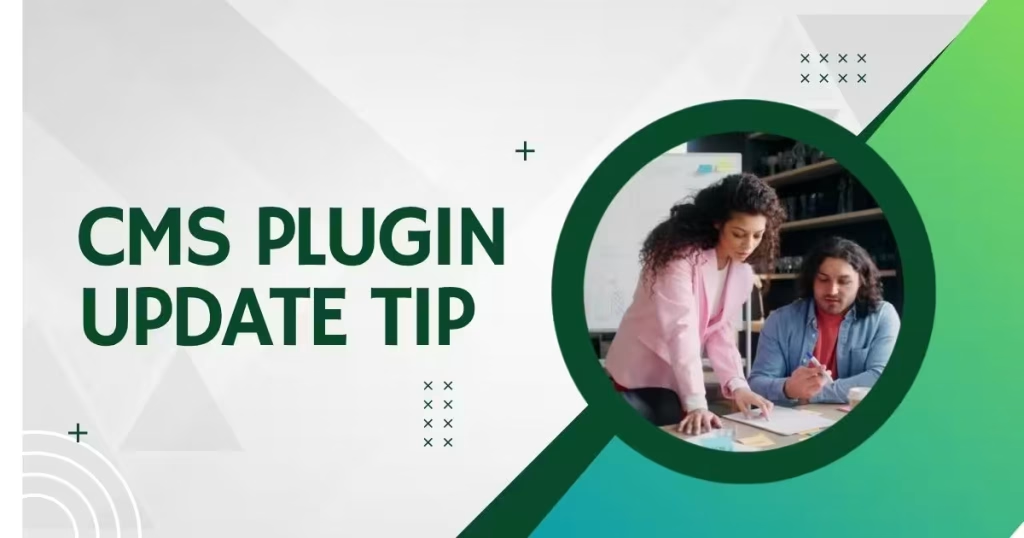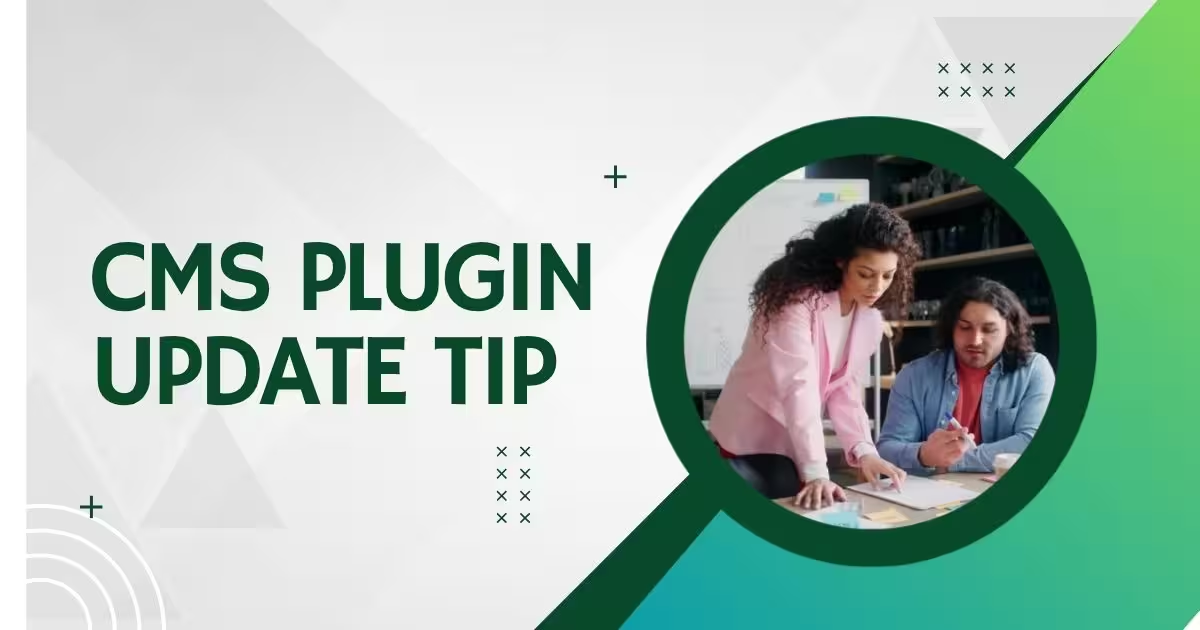
Updating Your CMS and Plugins Safely: Essential Tips for a Secure Website
In today’s fast-paced digital landscape, maintaining a secure and high-performing website is not optional—it’s imperative. Cyberattacks are growing in frequency and sophistication, and outdated software remains one of the most exploited vulnerabilities. Fortunately, by implementing a robust update strategy for your Content Management System (CMS) and plugins, you can significantly reduce security risks, optimize performance, and ensure a seamless user experience. If you’re looking for professional guidance, collaborating with a reputable Website development company in Tirupur can streamline the process and provide expertise tailored to your needs.
Understanding the Importance of Regular Updates for Your CMS and Plugins
Keeping your CMS core and plugins up to date is akin to locking your doors at night: it’s a basic but critical layer of defense. Every new CMS release addresses discovered security flaws, adds performance enhancements, and introduces new features that help your site stay competitive. Outdated plugins or themes, on the other hand, create hidden entry points that hackers love to exploit. A study by Sucuri revealed that 56% of hacked websites in recent years were compromised due to outdated software components, including plugins and CMS versions. By staying current, you not only safeguard sensitive customer data but also preserve your brand’s reputation and search engine rankings.
Leading Website development company in Tirupur experts recommend scheduling updates at regular intervals—typically monthly for minor patches and quarterly for major version upgrades. This cadence reduces downtime, prevents unexpected compatibility issues, and ensures that your site benefits from the latest security patches as soon as they’re released.
Website Development Company in Tirupur: A Step-by-Step Guide to Safely Updating Your CMS
Updating the CMS core involves more than clicking “Update now.” A systematic approach, often championed by trusted Website development company in Tirupur teams, includes:
- Pre-Update Audit: Inventory all active plugins, themes, and custom code. Note their current versions and compatibility notes.
- Full Backup: Use automated backup solutions—such as BlogVault, UpdraftPlus, or Duplicator—to create a full snapshot of your site, including files and databases. Store backups off-site (e.g., Amazon S3, Google Cloud Storage) to protect against server failures.
- Staging Environment Setup: Clone your live site into a staging environment. This sandbox mirrors your production site and safeguards visitors from any disruptions during testing.
- Resolve Conflicts: Address any breaking changes immediately. This may involve updating or replacing incompatible plugins, patching custom code, or rolling back to a prior CMS release while awaiting vendor fixes.
- Version Control: Commit all changes in a version control system like Git. This establishes a clear change history and simplifies rollback if needed.
- Go Live: Once staging tests pass, schedule the update during low-traffic hours. Notify stakeholders in advance.
- Post-Update Monitoring: Monitor server logs, Google Analytics, and performance metrics for any anomalies. Tools like New Relic or Datadog can help detect performance regressions.
By following this structured methodology, a professional Website development company in Tirupur can guarantee minimal downtime and near-zero risk of data loss during core CMS upgrades.
The Role of Backups in Preventing Data Loss During Updates
Imagine updating your site and suddenly encountering a critical error that locks you out of the dashboard—or worse, corrupts the database. Without a recent backup, you’re left scrambling to rebuild from scratch. That’s why robust backup strategies are non-negotiable:
- Full Site Backups: Perform weekly full backups capturing all files, the database, and server configurations.
- Incremental Backups: Schedule hourly or daily incremental backups that only store changed data, minimizing storage use while ensuring you can roll back to a recent state.
- Off-Site Storage: Keep backups in geographically dispersed locations (cloud storage, remote servers) to guard against physical disasters.
- Automated Verification: Use tools that automatically verify backup integrity by performing test restores in isolated environments.
- Retention Policy: Maintain a backup retention policy—e.g., daily backups for two weeks, weekly backups for three months, monthly backups for a year—to comply with legal and business requirements.
An experienced Website development company in Tirupur integrates these backup protocols into every maintenance plan, ensuring you can swiftly recover from any mishap, update failure, or security breach.
Best Practices for Updating Plugins Without Compromising Security
Plugins offer powerful functionality—e-commerce carts, SEO tools, page builders—but they also account for over 40% of entry-point vulnerabilities in CMS-based sites. To update plugins safely:
- Compatibility Checks: Review each plugin’s changelog and compatibility notes. Ensure the new version supports your CMS release and core theme.
- Plugin Audit: Periodically audit your plugin inventory and deactivate or remove unused plugins. Fewer plugins mean fewer potential vulnerabilities.
- Selective Updates: Rather than blanket-updating all plugins at once, update one or two at a time. This makes isolating issues easier.
- Staging Testing: Just like CMS core updates, apply plugin updates in a staging environment first. Verify front-end and back-end functionality across browsers and devices.
- Review User Feedback: Before updating, scan the plugin repository for recent negative reviews or reported bugs that may indicate stability issues.
When you partner with a Website development company in Tirupur, they leverage specialized tools—such as ManageWP, WP-CLI, or Plesk’s WordPress Toolkit—to automate plugin updates while maintaining granular control over each step of the process.
Website Development Company in Tirupur: Troubleshooting Common Issues After Updates
Despite best practices, updates can occasionally trigger issues. Here’s a troubleshooting roadmap used by top Website development company in Tirupur teams:
- Check Error Logs: Review PHP and server logs for fatal errors or warnings. This pinpoints conflicts between code libraries or deprecated functions.
- Enable Debug Mode: Activate CMS debug mode (e.g., WP_DEBUG in WordPress) to reveal notices, warnings, and errors that can guide your fix.
- Plugin/Theme Conflict Isolation: Deactivate all plugins and switch to a default theme. Then, reactivate plugins and themes one by one, identifying the culprit.
- Database Integrity Checks: Corrupted database tables can cause issues. Use tools like phpMyAdmin or WP-CLI’s database repair commands to diagnose and repair tables.
- Consult Vendor Support: If a premium plugin or theme is at fault, reach out to the developer’s support team. They often provide hotfixes or patches.
- Manual Rollback: If time is of the essence, restore the site to its last stable backup to minimize downtime while you investigate further.
Emergency repair protocols like these allow a Website development company in Tirupur to restore full functionality—often in under an hour—minimizing lost revenue and user frustration.
Stay Ahead with Safe CMS and Plugin Updates
By implementing structured update processes, leveraging staging environments, and maintaining reliable backups, you can protect your site against data loss, hacking attempts, and downtime. For businesses seeking seamless execution, partnering with a leading Website development company in Tirupur .Ready to transform your update strategy? Contact a specialized Website development company in Tirupur today and fortify your website against tomorrow’s threats.

















